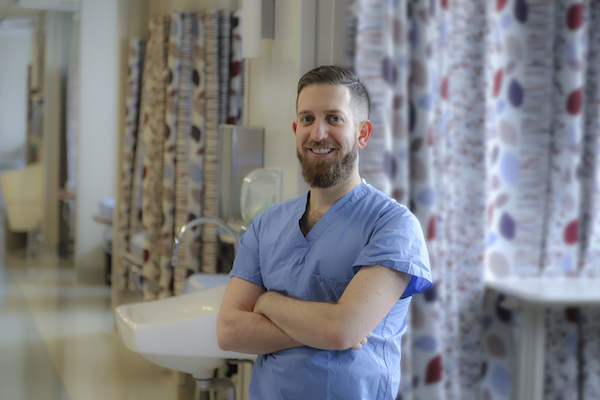Sexual Health
Mental Health

We sat down with Felix's advising urologist Dr. Yonah Krakowsky to answer your most frequently asked questions and break down common myths about erectile dysfunction and ED medication. Read on to find out what he had to say.
I'm a urologist at the University of Toronto. I trained at the University of Toronto and Harvard Medical School for a fellowship in sexual medicine. I focus on sexual medicine and gender surgery. In my practice, I see people that are experiencing sexual dysfunction — some of which have surgical approaches that I offer. In addition, I'm honoured to be the medical director of the transition-related surgery program at Women's College Hospital. We are the first program of our kind in Ontario and we aim to increase access to gender surgeries in Ontario.

I've always loved connecting with people. I like being part of an area of medicine that is very solution-based. I find our patients are of all ages and each have unique stories. We try to create a supportive environment for the folks we see. The blend of surgery and medicine in our area is unique and leads to a varied and rewarding week.
I think we often overlook the impact of overall health on sexual function. How we sleep, eat, exercise, and think all deeply impact our sexual function.
ED medications help with blood flow to the penis. It's a common misconception that they can be used for all sexual issues. The data is clear — they promote rigidity for those experiencing ED. ED can be caused by many things: stress, diabetes, pelvic surgery, hormonal issues. The data suggests, and my clinical experience is the same, that ED meds can have a role in improving the situation in many men across most causes. Of course, not everyone will respond and those on nitroglycerin, experiencing cardiac chest pain, or not safe for intimacy for cardiac reasons, should not be using these medications.
Common side effects include flushing, headache, back pain, and visual changes including blue vision.
Strictly speaking, this doesn't occur. People may start achieving and sustaining better erections and then rely on the medications but we don’t see or think one can become dependent on it any more than people depend on their thyroid medications or blood sugar medications.
We generally recommend not combining ED meds with other substances. A reasonable amount of alcohol isn’t contraindicated. We don’t know how ED meds interact with other drugs and some of those drugs have a risk of a prolonged, painful erection that requires medical attention.
I like to think that ED is becoming less stigmatized with time and added awareness. I think there are a number of factors here. There is more talk about the basics of ED in the media and lots more talk about treatments on TV. Despite this, there still is stigma around sexual dysfunction. The more healthcare practitioners ask about, and normalize, sexual dysfunction, the less stigmatized it would be.
I think overall ED medications have an important role in treating sexual function, however we can lose focus on the lifestyle modifications such as diet, stress, exercise, and sleep that really make a difference.
If you want to talk to a healthcare practitioner about treatment options, start your online assessment with Felix today.
The views expressed here are those of the author and, as with the rest of the content on Health Guide, are not a substitute for professional medical advice, diagnosis, or treatment. If you have any medical questions or concerns, please talk to your healthcare practitioner.